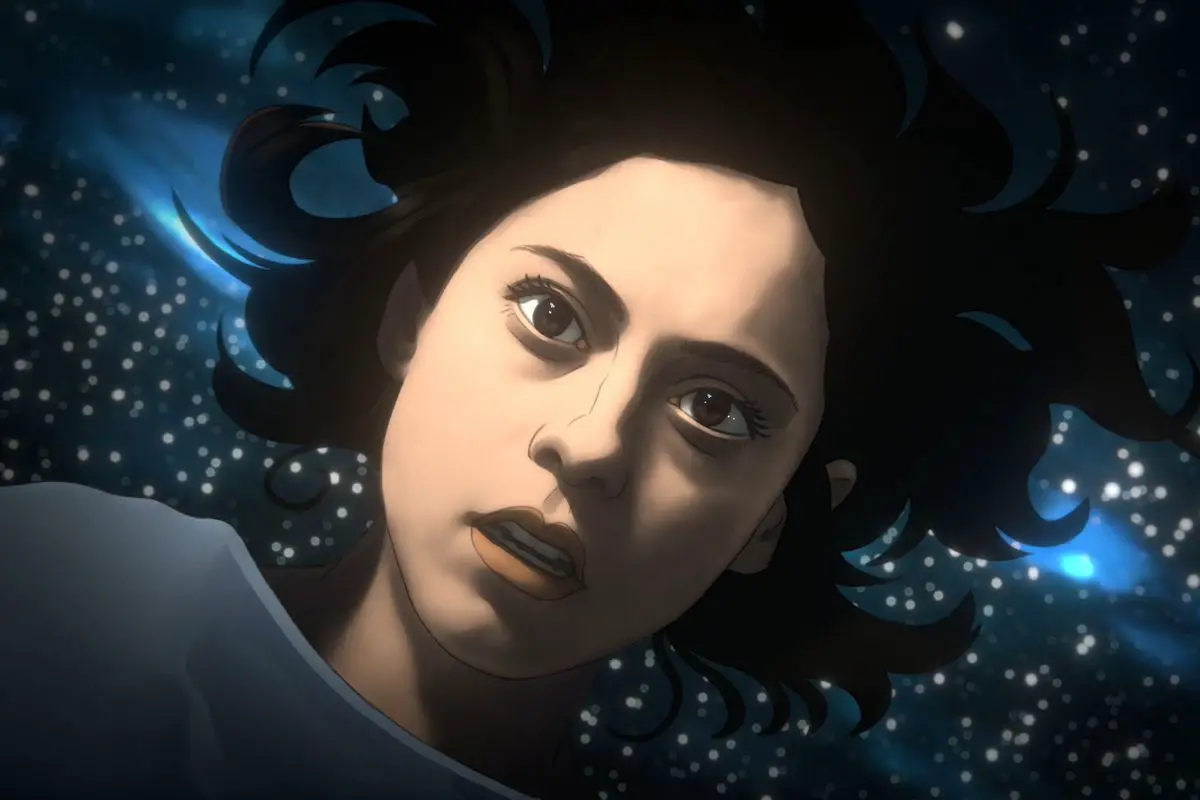At some point, everyone becomes worn down by the daily grind. It’s completely natural. No matter the stage in life, monotony eventually settles over the hustle and bustle of a constant routine. It exists undisturbed, like a fine layer of dust, until something comes along to scatter the particles. “Undone,” Amazon Prime’s new animated dramedy, is concerned with this moment. The instance where a routine unravels, or becomes undone, is the focal point of the series.
The story begins with Alma, a 28-year-old washup dissatisfied with her life’s circumstances. Her days seem to repeat — filled with the same irksome supporting cast no matter the situation. The college dropout works at a small daycare, picks up groceries and battles a tedious commute. She listens as her mother tries to convince her to attend church and spends evenings with a happy-go-lucky boyfriend.
Essentially, Alma is sick of her ungratifying routine. She endures, “the same bed … the same breakfast …” and “the same commute to work,” day after day. Even her grief is decades old and unsurprising. Emotionally, Alma is still reeling from her father’s death, an event her family seems to disregard.
Immediately, audiences can see that “Undone” is different from the typical animated series. For starters, the animation itself is unusual. Creators employ rotoscope animation to lend the series a surreal vibe. In rotoscope animation, “animators trace over live action film movement on each frame to use in animated form.” Somehow, the technique produces a picture that is simultaneously realistic and otherworldly.
https://www.instagram.com/p/B2WuS6JDbt7/?utm_source=ig_web_copy_link
With rotoscope animation, each character’s tiny nuances leap onto the screen. The detail oriented style perfectly captures another distinguishing mark of this series: its existential content. In the opening scene, Alma greets audiences with the dreary revelation that she’s “so bored of living.” Later, when she cries “everything is pointless,” the exquisite animation technique beautifully captures the agony.
After this melancholy proclamation, “Undone” gives viewers a break from the existential material. Instead, spectators watch as Alma spars with her newly engaged sister, Becca. These moments offer more insights into the protagonist’s emotional state.
At first, Becca struggles to capture Alma’s attention with her engagement ring. She pointedly flashes her manicure, flips her hair and scratches her face, all with the intention of grabbing her distracted sister’s attention. The exchange reveals one massive trait to audiences: Alma is deeply self-absorbed.
Of course, the protagonist’s despair is relatable, since the daily grind wears on everyone after a while. Additionally, the people around her don’t exactly embody selflessness. Alma’s family refuses to consider her sadness, and never fail to redirect conversations back to themselves. As they concentrate on fulfilling all of life’s token accomplishments (employment, marriage, children, etc.), Alma begins to wonder if life is even worth living.
Still, it is Alma’s self-absorption that launches the story’s definitive moment. After a belligerent argument with Becca, our hungover protagonist jumps in her car to speed away from the conflict. As she drives, gut-wrenching sobs shake her body.
This heaving distracts Alma from oncoming traffic, causing a truck to plunge into the side of her tiny car. Seconds before her final collision with a telephone pole, the frantic heroine sees her dead father casually smoking a cigarette on the sidewalk. Rest assured, the plot of “Undone” only gets weirder from here.
After the accident, Alma wakes up in a hospital bed. Physically, she’s maintained a massive head wound and has laid motionless in a coma for weeks. Additionally, something else has changed, or rather, something has become undone. The transformation lies beyond a doctor’s ability to explain.
The car crash dramatically changes Alma’s perception. Beforehand, she functioned in one distinctive time and reality. These conditions governed her experiences, and she lived out a monotonous daily routine within them. Apparently, a hidden potential always lurked beneath the surface of her brain. Now, thousands of alternate realities flash across her vision. Colorful, bizarre and sometimes frightening phantasms appear around every corner. She sees all the possible outcomes of a scenario, and can sometimes use this knowledge to manipulate the situation.
Alma’s newfound vision comes with a price. Her father, alive and well in her chaotic mind, has a task for the reluctant girl. As it turns out, his death 20 years earlier was not an unfortunate accident.
The dry, bespeckled man offers his daughter a choice. She can either use her sight to shed light on his murder or drift back into a dull routine. In his final attempts to convince her, Alma’s father admits that, “You can choose to tune all this out. You can go back to the life you were living.” Or, she can embrace, “a life that doesn’t follow a paint by numbers timeline.”
https://www.instagram.com/p/B2ez6BzDWKe/?utm_source=ig_web_copy_link
At first glance, viewers might think that “Undone” presents a classic zero to hero plotline. After all, Harry Potter lived a miserable life under the stairs before discovering his magical abilities. Before leaving The Shire, Bilbo Baggins is a perfect picture of monotony. At one time, Katniss Everdeen led a normal existence in her post-apocalyptic world, and Percy Jackson attended school with all the normal kids. Could Alma’s story simply follow this classic plotline? Is she an undiscovered “chosen one,” destined to save the universe?
In the first episode, “Undone” dispels these tropes with a brief revelation: Alma’s family has a history of schizophrenia. Her grandmother suffered attacks from her own mind, and our heroine is at the age when the illness manifests itself. Thanks to this tidbit of information, the nature of Alma’s new perception becomes increasingly complex. The series rejects the protagonist within most fantasy stories in favor of a complicated, ultimately mysterious woman.
https://www.instagram.com/p/B2o_jh8DIoT/?utm_source=ig_web_copy_link
Undoubtedly, Alma’s perspective is unreliable, and viewers can never fully lean on her interpretation of reality. Although she doesn’t garner immense trust, the protagonist always maintains a relatable vibe. Her initial musings on the daily grind, filled with startling accuracy, resonate with audiences.
As the series progresses, the true nature of her visions becomes increasingly vague. Nevertheless, onlookers will want the fantastic new reality to continue unfolding. Desperately, viewers will want Alma’s mind to remain “undone,” so they can ponder the moment that shattered her routine.










